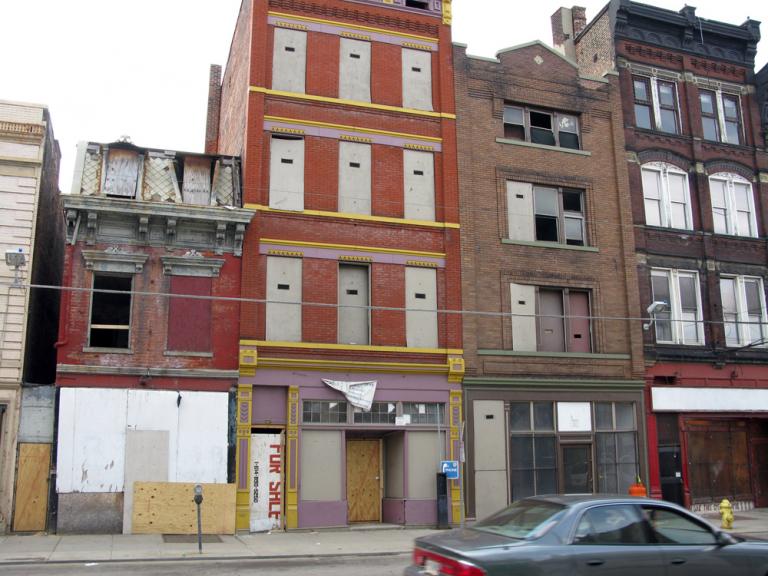As I keep harping on in this blog, the white working class in rural small towns and rust-belt cities has become the largest demographic of the unchurched in America. They also have the lowest marriage rates and the worst problems with drug addiction, including heroin. These folks in what used to be America’s “heartland” used to be the backbone of our churches, but today church growth and evangelism efforts are aimed mostly at high status groups, such as the Millennials, the college educated, and affluent suburbanites.
This has been bothering me, especially now that I have moved back to my roots in small town, rural Oklahoma. So I was happy to be among the representatives of our congregation to the Rural and Small Town Ministry conference last week in Kansas City, sponsored by the Lutheran Church Missouri Synod as part of its work in this demographic.
I learned that 60% of Americans in rural and small town areas are unchurched. I’m still trying to learn what happened since the days of my childhood, when small towns were booming and virtually everyone went to church. I know that many small town economies have collapsed, the young and college educated have moved to the cities, the population is getting old, and hard working men who injured themselves got hooked on the opioides the doctors prescribed them and, once the medical profession cracked down on narcotic pain relievers, turned to heroine instead. But I still don’t understand wha happened to cause the collapse in church attendance. (If any of you have theories, I’d be glad to hear them.)
I also learned at the conference that 50% of LCMS congregations are in the rural and small town category. Many of these churches have become extremely small and so struggle financially. But they are serving these forgotten people.
Also, over 50% of new seminary graduates get their first call to one of these rural congregations. Few of them can afford vicarages, so many of those newly-fledged pastors find themselves in culture shock–finding themselves in a community sometimes with a population of only a few hundred; isolated, “in the middle of nowhere”; with an unusually low salary as they try to pay off their student loans–so that they are eager to take another call the first chance they get. Since these rural churches depend on placements from the seminary, their new pastors often have little experience in ministry in rural settings, even though these can be especially challenging. And yet, at the conference, I heard pastors who stuck it out and grew to love this kind of ministry in this kind of setting.
I was pleased to see that the LCMS and all of these little churches are doing a lot of invaluable ministry in this context. Those of us at the conference, nearly all of whom were from churches like these, were given some good ideas and heard some inspiring teaching.
For example, our daily Bible study was lead by Rev. Dr. Roosevelt Gray, Director of Black Ministries for the LCMS. What a gifted Bible teacher he is! He told about his experience evangelizing and working with addicts, prostitutes, and other seemingly hopeless men and women in the black urban centers, whose problems are now those of small town rural America. He said that these people often believe that their sins are so great that God could never forgive them. Dr. Gray told of his own background, growing up in rural Alabama. His only exposure to Christianity was the hell-fire and brimstone preachers. As a child, he learned that “God was big and was mad at me.” He was afraid of God and, as he grew older, wanted nothing to do with Him. Later, a young woman he wanted to date–and would later marry–said that she would only go out with him if he went to church with her. He did, and it was a Lutheran church, where he learned about God’s love for the world in Christ (“‘For God so loved the world’–not ‘for God so hated sin’–‘that He gave His only begotten Son. . . .'”) and where he heard the Gospel for the first time.
We also heard from Rev. Craig Muehler, Navy chaplain and Director of LCMS Ministry to the Armed Services. A big proportion of the men and women who volunteer for military service come from rural areas and small town communities, which also have a large proportion of veterans. Chaplain Muehler told us about the synod-wide Operation Barnabas, a one-of-a-kind ministry to military families and veterans.
Chaplain Muehler said that may veterans, especially those with by Post-Traumatic Stress Syndrome, are tormented with guilt about having had to kill people in combat. They are convinced that what they did will exclude them from salvation. Again, what they need is a full understanding of the Gospel. Also, though, Chaplain Muehler told about the often transforming impact of teaching the doctrine of vocation. Drawing on Luther’s treatise Whether Soldiers Too Can Be Saved, he has explained to soldiers and veterans how the military vocation, in which they “bear the sword” in a Romans 13 chain of command, is a legitimate calling from God, a way to love and serve one’s neighbors, even when that means killing the enemies who threaten them.
Again, we see that Lutherans have some distinct advantages in ministering to these groups, both in our teachings and in our being already placed in these communities.
Photo: Wholtone [Public domain], from Wikimedia Commons














